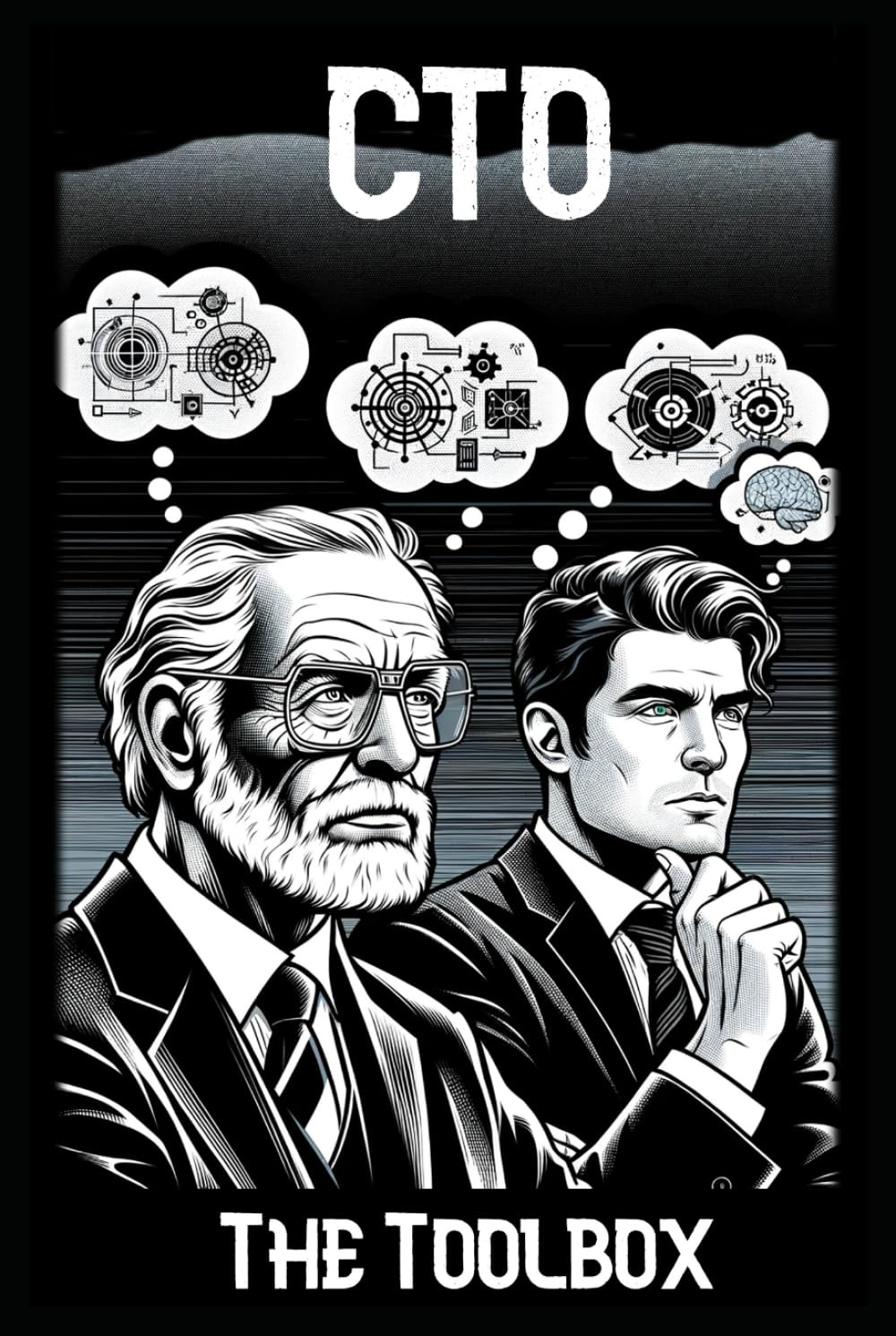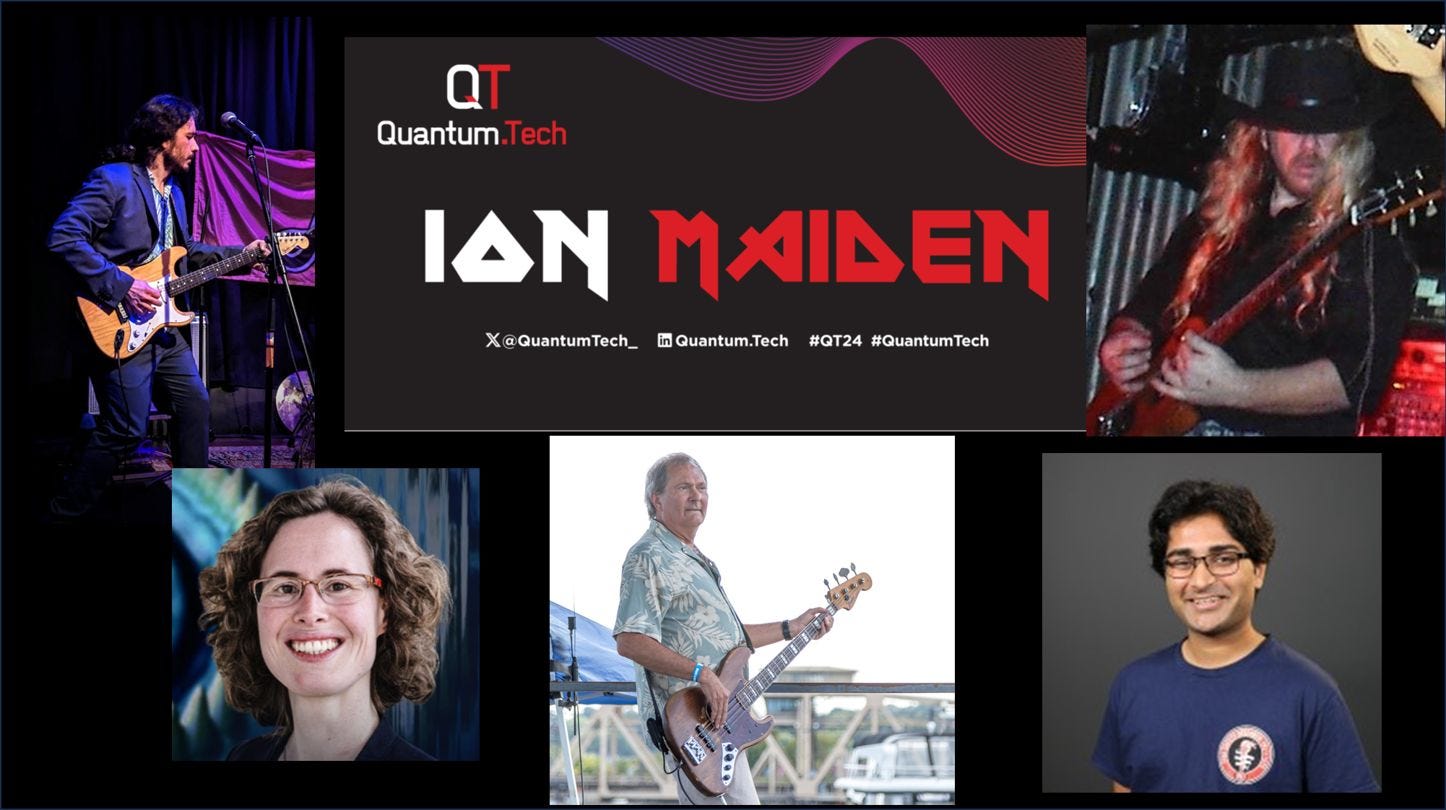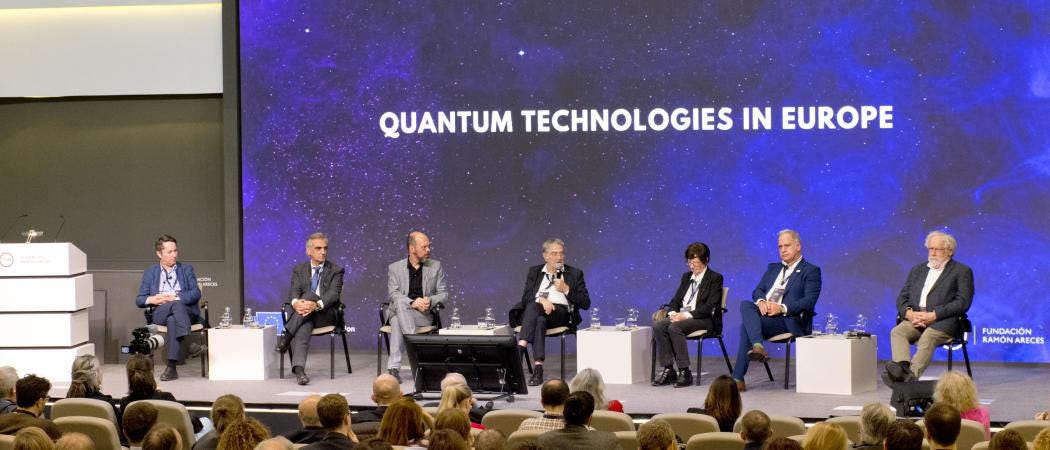The Week in Quantum Computing - April 22nd 2024 - Quantinuum goes 99,9, Europe, CDL, QuTech, Horizon Quantum
Issue #182
The Week in Quantum Computing. Brought to you by Sergio Gago (@piratecto).
Quick Recap
A big week of developments! Intel's investment in quantum education, and CDL's Quantum Stream expansion underscore the importance of education and collaboration in advancing the quantum field. European researchers continue to lead in quantum innovation, backed by the QuantERA and Quantum Flagship programs. At the same time the Quantum Safe Financial Forum gets born with help of Europol and several financial institutions (including Santander Bank and Moody’s among others). Companies are striving to reach 10,000 physical qubits within five years, a significant leap towards unlocking quantum computation's full potential. China's advanced superconducting quantum computer, Origin Wukong, has been fortified with a powerful "anti-quantum attack shield," indicating China's exploration of new data security technologies. The Dutch quantum institute QuTech aims to construct Europe's first 100-qubit quantum computer by 2026, while Qunnect achieved a record-breaking performance in the distribution of polarization qubits on the GothamQ Network.
Yilei Chen's paper on quantum algorithms for lattice problems could have substantial implications if quantum computers are built, but they found a bug!. Lastly, Quantinuum achieved significant milestones in quantum computing, demonstrating 99,9% fidelity on 2 qubit gates. on their H-Series QCs. This plays very well with their error correction announcement with Microsoft from two weeks ago (Even though still limited by the amount of qubits).
Oh yeah. You may have heard about the paper that demonstrates a Commodore 64 being more powerful than IBM's Eagle device. Ok, that was fun and reminds me that bashing report on IonQ from a fund that just wanted to short their stock. And their main argument was “It does a poor job doing basic algebra”. While fun, I believe those papers do a lot of disservice to the industry. First of all, quantum computers are not yet here in the sense of “advantage” but will be. Second, they don’t necessarily have to tackle the same problems as a Commodore (I was more of an Amstrad guy myself). My take: Whenever you hear someone saying “I have quantum advantage today”, be skeptical. Whenever you hear someone saying “Quantum computers are terrible and will not serve for anything” be twice as skeptical. Funny enough, sometimes those are the same scientists that have research grants to make quantum a reality!!
Featured - The Chief Technical Officer Toolbox
Many of you, my dear readers may not know this. But before getting into Quantum I was a CTO working for companies big and small. From startups, to scaleups to corporates leading (classical) technology teams. I have put over two decades of experiences in a book to help aspiring and seasoned tech leaders on their journey. And 100% of the proceeds are donated to two NGOs: Teaming.net and MigraCode Barcelona. Get your copy and help the world, or give it to your favourite CTO!
Hardcover, paperback and Kindle available on Amazon here: https://mybook.to/ctotoolbox
Join me THIS WEEK! in Washington DC to talk about Quantum Computing in finance, how to build a quantum team and of course the “Ion Maiden” live show.
The Week in Quantum Computing
Embracing the Future: QURECA’s new brand identity and innovative learning solutions
In a move to democratize quantum education, QURECA has unveiled its new brand identity, revamped website, and an innovative Learning Management System (LMS). The LMS, a product of extensive R&D, offers an immersive, interactive learning experience with features like personalized learning paths and real-world quantum computing simulations. QURECA's new course catalogue is its most comprehensive one yet, covering topics from quantum basics to advanced applications. This rebranding signifies QURECA's commitment to make quantum education accessible, interactive, and impactful for learners worldwide, thus empowering professionals, students, and quantum enthusiasts through education.
(Disclaimer: Qureca is Moody’s Quantum Education provider and together we are releasing “Quantum for Quants and Data Scientists this month)
https://www.qureca.com/innovative-learning-solutions/
A Day in the Life of Quantum Engineers: Intel Leads Efforts to Grow the Quantum Ecosystem
Intel Labs engineers Drew Risinger and Tom Watson are leading the charge in quantum computing research, focusing on harnessing the power of silicon spin qubits in challenging cryogenic environments. To foster the next generation of quantum engineers, Intel is funding quantum computing education programs for K-12 and master’s students globally. Among these is a master’s program at the Deggendorf Institute of Technology. Risinger, a systems research engineer, develops software for quantum systems, while Watson, a quantum hardware engineer, works on enhancing the performance of quantum devices. Intel's commitment to quantum computing education and research signifies the importance of this technology in shaping future computing paradigms.
Creative Destruction Lab’s Quantum Stream Expands, Connecting Quantum Hubs in Toronto and Montreal
Creative Destruction Lab (CDL) has announced a strategic partnership expansion of its Quantum Stream, connecting quantum hubs in Toronto and Montreal. The stream, which was initially launched at CDL-Toronto in 2017, has contributed to approximately one-fifth of all quantum startups worldwide and raised over $825 million CAD. The partnership with CDL-Montreal aims to bolster growth and innovation in the quantum technology sector. "Our graduates continue to push the boundaries of what is possible in this nascent domain," said Francesco Bova, Academic Lead of the Quantum stream at CDL-Toronto.
https://creativedestructionlab.com/blog/quantum-expands-toronto-montreal/
On a quantum quest: Europe’s journey towards technological innovation
European researchers are emerging as leaders in the global quantum revolution, backed by the QuantERA research funding program and the Quantum Flagship. QuantERA, the EU's largest funding scheme for quantum science and innovation, has supported over 100 international projects and nearly 550 research groups. The Quantum Flagship, spearheaded by the European Commission, aims to secure Europe's leadership in quantum technology development. Standout projects include "QISS·ME," led by Dr. Mariana Ramos, which focuses on secure datacentre communication, and "AQuSeND," led by Prof. Adam Wojciechowski, which aims to develop new quantum detection protocols employing nanodiamonds. The majority of European countries now have well-defined research agendas and innovation priorities in quantum technology, with Austria, Denmark, Spain, Sweden, and Switzerland leading the field.
https://sciencebusiness.net/news/quantum-quest-europes-journey-towards-technological-innovation
Quantum Computing Giants Eye 10,000 Qubits Milestone: A Quantum Leap towards Practical, Fault-Tolerant Quantum Machines
Several quantum companies have announced plans to reach 10,000 physical qubits within the next five years, a significant leap from the current 20 to 300 qubits. The goal of 10,000 physical qubits is not just a pursuit of quantity, but a strategic step towards unlocking the full potential of quantum computation. Achieving this milestone allows for the practical realization of over 100 logical qubits, crucial for performing longer, more complex computations with fewer errors. The transition from noisy, physical qubits to fault-tolerant, logical qubits is transformative and signifies a shift from experimental quantum computing to a practical technological powerhouse.
https://www.hpcwire.com/2024/04/15/crossing-the-quantum-threshold-the-path-to-10000-qubits/
China’s advanced quantum computer fortifies defenses against attacks
China's most advanced superconducting quantum computer, Origin Wukong, has been fortified with a powerful "anti-quantum attack shield" to enhance its defense against potential attacks by other quantum systems. Developed by Origin Quantum, the shield represents a significant exploration of new data security technologies in China, as per Dou Menghan, deputy director of the Anhui Quantum Computing Engineering Research Centre. Origin Wukong, featuring a 72-qubit home-grown superconducting quantum chip, is a third-generation machine that marks a significant upgrade from its predecessors.
https://interestingengineering.com/innovation/china-origin-wukong-encryption-shield
Commodore 64 outperforms IBM's quantum systems 1 MHz computer said to be faster, more efficient, and decently accurate
The Commodore 64, an iconic 40-year-old home computer, reportedly outperforms IBM's 127-Qubit 'Eagle' quantum processing unit (QPU), according to a paper presented at the SIGBOVIK 2024 conference. The research, conducted anonymously, found that their 'Qommodore 64' project was faster, more efficient, and "decently accurate" when simulating the IBM 'quantum utility' experiment. The Commodore 64 used a mere 15kB of its 64kB memory for this task, with the final code consisting of about 2,500 lines of 6502 assembly. Despite the researchers acknowledging the project as a joke, the results challenge the perceived superiority of quantum computers.
Europe plans to build 100-qubit quantum computer by 2026
Dutch quantum institute QuTech, in collaboration with a consortium of Dutch institutions, aims to construct Europe's first 100-qubit quantum computer by 2026. The project is financed by Quantum Delta NL through the European OpenSuperQPlus initiative, with 28 partners from 10 countries. The 100-qubit quantum computer will be made publicly available for quantum calculations and simulations. Various spin-off companies, including QuantWare, Delft Circuits, Qblox, and Orange Quantum Systems, are contributing to the project. Lead researcher Leonardo DiCarlo notes the full-circle nature of the R&D cycle, where academic research has fostered spin-off companies whose products now accelerate academic research.
https://physicsworld.com/europe-plans-to-build-100-qubit-quantum-computer-by-2026/
Qunnect Achieves Record-Breaking Performance for Distributing Polarization Qubits on GothamQ Network in NYC
Qunnect, a quantum technology company, has achieved a record-breaking performance in the distribution of polarization qubits on the GothamQ Network in New York City. The company demonstrated transmission rates of 500k qubits per second over 10 km of standard telecom fiber, representing a significant advancement in quantum communication. This achievement marks a key milestone in the development of quantum networks, which are expected to revolutionize various sectors including cybersecurity, data analytics, and machine learning.
Implications of the Proposed Quantum Attack on LWE
Yilei Chen's paper, "Quantum Algorithms for Lattice Problems," proposes a polynomial time quantum algorithm for specific parameter sets for the Learning-With-Errors (LWE) problem. This is significant as LWE underpins many of the post-quantum algorithms selected by NIST and several cryptographic constructions, including Fully Homomorphic Encryption (FHE). Chen's paper, yet to be peer-reviewed, could have substantial implications if quantum computers are built. The LWE problem, a noisy version of linear algebra, becomes easier if the modulus 'q' increases, unlike RSA or DLP.
Note: In the end, the paper had a bug in the algorithm that gave us a breather. We are still safe, but this is (another) wake up call that the Y2Q can happen anytime.
https://nigelsmart.github.io/LWE.html
Quantinuum extends its significant lead in quantum computing, achieving historic milestones for hardware fidelity and Quantum Volume
Quantinuum has achieved significant milestones in quantum computing, including a 99.914% 2-qubit gate fidelity and a Quantum Volume surpassing one million, exponentially higher than its competitors. This achievement is critical for successful error correction in quantum computing. Quantinuum's achievement was demonstrated on their H1-1 system, setting a high standard for the industry. In partnership with Microsoft, the company also announced a breakthrough in quantum error correction. These advancements are part of Quantinuum's commitment to improving the performance of its H-Series quantum computers by 10x each year for five years.
Quantum Safe Financial Forum : Europol
In 2024, Europol’s European Cybercrime Centre (EC3) created the Quantum Safe Financial Forum (QSFF), in close cooperation with the EC3 Advisory Group on Financial Services.
The QSFF initiative is a multi-stakeholder effort to address the transition to Post Quantum Cryptography (PQC) across the financial sector, with a particular focus on Europe. The QSFF includes experts from several major EU, UK and American commercial and central banks, as well as other financial services providers, associations and experts.
https://www.europol.europa.eu/about-europol/european-cybercrime-centre-ec3/qsff
Quantum Machine Learning Goes Photonic
A team led by Alessia Suprano at Sapienza University of Rome has successfully applied a quantum extreme learning machine to reconstruct the initial polarization state of a photon. The researchers sent single photons through a series of devices that modified their initial state, measuring the output photon's orbital angular momentum. After processing data from 300 photons, the machine-learning model was trained to reconstruct their initial polarization states. The model performed 5 to 10 times better than alternative methods for retrieving quantum properties from measurements.
https://physics.aps.org/articles/v17/s41
Quantum Insights: Innovating Data Representation, Analysis, and Visualization
Lawrence Berkeley National Laboratory (Berkeley Lab) researchers, in collaboration with San Francisco State University (SFSU) and Case Western Reserve University, have introduced innovative methods for data storage, analysis, and visualization in quantum computing. The team, led by Talita Perciano, a Research Scientist at Berkeley Lab, has made significant strides in understanding and harnessing current quantum devices. The team introduced two new methods, QCrank and ABArt, which utilize innovative techniques to encode data for quantum computers. These advancements aim to make quantum computing more practical and help visualize quantum computation. The team tested their methods on noisy intermediate-scale quantum (NISQ) devices, obtaining remarkably accurate results.
That IACR preprint - Scott Aaronson review
Cryptographer Yilei Chen recently posted a preprint, eprint.iacr.org/2024/555, claiming to have developed a polynomial-time quantum algorithm to solve lattice problems such as the GapSVP problem. If correct, this would significantly improve upon the best known approximation ratio, which was previously exponential in n. This development could potentially destabilize lattice-based cryptosystems, leaving them vulnerable to further polynomial improvements. It could also threaten the security of Fully Homomorphic Encryption schemes and Mahadev’s protocol for quantum computation proof. The paper is currently under review by world experts in quantum algorithms for lattice problems, and its correctness is yet to be confirmed. This development could potentially reshape the landscape of quantum computing and cryptography.
https://scottaaronson.blog/?p=7946
Prepping For Post-Quantum Cryptography
Scott Best, a senior engineer at Rambus, discusses the urgency of transitioning to quantum-resistant protocols like lattice cryptography in an interview with IEEE Spectrum. He highlights that while quantum computers are not yet powerful enough to pose a major threat, it is crucial to start preparing for a future where they can break current encryption methods. The U.S. National Security Agency (NSA) has a plan to switch the country's cloud services and network infrastructure to lattice cryptography algorithms developed by the National Institute for Standards and Technology (NIST). Best emphasizes that while the transition is not immediately essential for consumer electronics, defense systems and automotive applications need to be upgraded now due to their longer service life. The NSA aims to complete this transition by 2033, a target that Best describes as a "heavy lift" but achievable. The race is on to upgrade infrastructure before quantum computers become capable of breaking existing digital security protocols.
https://spectrum.ieee.org/post-quantum-cryptography-2667758178
How Boards Can Prepare for Quantum Computers
Quantum computing, with its potential to disrupt high-performance computer systems and classical cybersecurity, is being driven by applications that process massive calculations for big data. This includes development of new pharmaceuticals, financial modeling, next-gen communication capabilities, logistics optimization, and more. Jérémie Guillaud, Chief of Theory at French quantum computer manufacturer Alice & Bob, suggests companies should prepare to defend against an attacking machine with 1 million qubits. He estimates the threat to enterprises is likely still a decade away. Companies are advised to start planning now for the upcoming migration to the new computing environment, including network and system upgrades, which could take up to a decade to fully implement.
https://www.darkreading.com/cyber-risk/how-boards-prepare-quantum-computers
Major First: Quantum Information Produced, Stored, And Retrieved
A team of researchers, led by quantum optics physicist Sarah Thomas from Imperial College London (ICL), have developed a system that can produce, store, and retrieve quantum information. This system uses atomic processing nodes to contain the critical states created by a quantum dot, compatible with existing telecommunications infrastructure. It requires two devices: one to produce and potentially entangle photons, and a 'memory' component that can store and retrieve quantum states within those photons on demand. Although the system's transmission distance hasn't been tested yet, this development is a significant step towards scalable quantum networks.
https://www.sciencealert.com/major-first-quantum-information-produced-stored-and-retrieved
The UK’s second commercial quantum computer has come online
California-based Rigetti, in collaboration with Oxford Instruments NanoScience, has launched the UK's second commercial quantum computer. This 32-qubit system, housed at Oxford Instruments' facility in Oxfordshire, is Rigetti's first UK-based quantum computer and was made possible through a £10mn program, which includes the Quantum Software Lab at the University of Edinburgh, Phasecraft, and Standard Chartered Bank, and funding from the UK government’s Quantum Technologies Challenge. Rigetti plans to deploy a faster, 24-qubit quantum computer at the National Quantum Computing Centre’s Harwell campus. Standard Chartered Bank's involvement aims to establish it as a "quantum-ready financial institution," highlighting the growing importance of quantum computing in the financial sector.
https://thenextweb.com/news/uk-second-commercial-quantum-computer-comes-online
Horizon Quantum Computing to Establish First-of-a-Kind Hardware Testbed
Horizon Quantum Computing is establishing a first-of-its-kind testbed for integrating quantum computing hardware with its software stack, Triple Alpha, at its Singapore headquarters. The testbed will host multiple quantum computers, making Horizon one of the first pure-play quantum software companies to operate its own quantum computers. The modular system will use a Novera™ quantum processor from Rigetti Computing and OPX1000, the processor-based quantum controller from Quantum Machines. Dr Joe Fitzsimons, CEO of Horizon, believes that tight integration between hardware and software is the shortest path to truly useful quantum computing. The integrated system is expected to be installed by early 2025.
D-Wave Introduces New Fast Anneal Feature, Extending Quantum Computing Performance Gains
D-Wave Quantum has launched a fast-anneal feature for their quantum processing units (QPUs) on the Leap™ real-time quantum cloud service. This feature, a cornerstone of D-Wave's research, allows for quantum computations at unprecedented speeds and reduces the impact of external disturbances. It offers faster annealing times, enabling customers to reproduce and build on D-Wave’s optimization results using full-scale coherent annealing quantum computing. The feature is expected to attract commercial and academic researchers, with D-Wave's Advantage2™ prototypes having solved nearly eight million customer problems since their release.
Quantum-proof encryption may not actually stop quantum hackers
On April 18, Yilei Chen acknowledged an issue with his algorithm designed to break future-proofed encryption methods, which he currently can't fix. This indicates that the algorithm does not undermine the mathematics behind post-quantum cryptography as previously thought. The issue was independently identified by researchers Hongxun Wu and Thomas Vidick. While quantum computers pose a potential threat to current encryption methods, there's no immediate risk of hackers accessing encrypted data. The scramble among cryptographers to understand the algorithm and its implications on encryption continues.
Paper: Fault-tolerant quantum computing with the parity code and noise-biased qubits
Anette Messinger, Valentin Torggler, Berend Klaver, Michael Fellner, and Wolfgang Lechner have proposed a universal quantum computing architecture that can dynamically adjust to algorithmic requirements and suppress errors exponentially. Their fault-tolerant system leverages a code concatenation of noise-biased qubits and the parity architecture, understood as a LDPC code designed to obtain any desired logical connectivity. The system enables interactions between arbitrary sets of qubits, and requires less physical qubit overhead compared to the repetition code with the same code distances.
https://arxiv.org/abs/2404.11332v1
Quantum Flagship publishes IP Guidelines for Quantum Technologists
The Quantum Flagship has released a 46-page guideline on intellectual property (IP) for quantum technologists in Europe. The document, authored by the European Quantum Industry Consortium (QuIC) and the Technical Research Centre of Finland (VTT), is designed to assist in the development of best practices, ensure technology transfer and commercialization, and promote sustainable use of intellectual property rights (IPR). The guideline, divided into three sections (IPR and intellectual assets, IPR commercialization, IPR and standards), covers a range of topics from computer-implemented inventions to patent litigation.
Building for One Europe QIA Internship Programme 2024
The Quantum Internet Alliance (QIA) has announced its Building for One Europe Internship Programme 2024, offering ten internship opportunities at QIA sites in seven European countries. These opportunities range from advanced quantum labs in Italy, Spain, Luxembourg, and Austria to quantum startups in the Netherlands and France. The internships cover quantum computing, communication, and materials science. The program is open to master students, PhD candidates, postdocs, and young professionals, with QIA providing a maximum of €5,000 to cover travel, accommodation, and other expenses. Applications are open until May 15, 2024.








You produce great content, curating what important information for anyone who wants to stay up to date on quantum developments!! Thank you!!